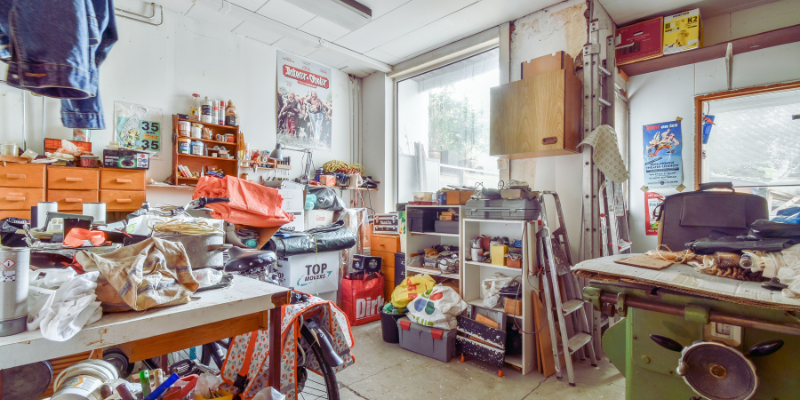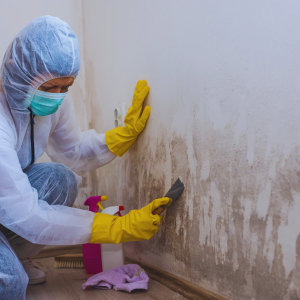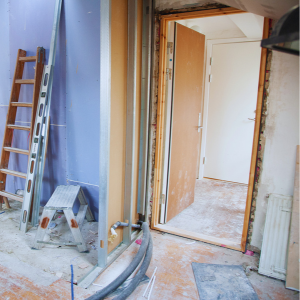
Understanding the Real Estate Market in North Carolina
If you want to sell a hoarder house in North Carolina, you need to know how the state’s real estate market works. North Carolina’s market is known for being diverse, with slower-paced rural parts and cities like Raleigh and Charlotte that are growing quickly.
This kind of landscape presents both opportunities and obstacles, especially for those trying to sell properties that need major cleaning or renovation, such as hoarder houses. Housing demand remains high in major cities due to job availability and population growth, which makes it even more important to price and position your property competitively.
Crafting a pricing strategy should take into account local trends, recent comparable sales, and the anticipated cost of repairs or upgrades. Also, teaming up with a real estate professional who has a background in selling distressed homes can offer key insights into what buyers want and how to market the home in a way that gets attention.
Knowing about these things gives buyers more confidence as they deal with North Carolina’s unique real estate market.
Challenges of Selling a Hoarder House in North Carolina
Selling a hoarder house in North Carolina comes with a set of challenges that can affect the entire selling process. These homes usually need deep cleaning and extensive repairs before they’re ready to list, since clutter and damage are often major concerns.
Buyers can be discouraged by the amount of work needed to bring the home back to livable condition. In a state like North Carolina, where buyer expectations vary between urban and rural markets, it’s important to make a hoarder home look as presentable as possible to generate interest.
Legal issues must also be thought about; local health and building rules must be followed, which can add to the work. Also, dealing with hoarding situations often means having tough talks with homeowners or their families, so the sale needs to be done slowly and carefully.
If these challenges aren’t handled properly, they can result in your home sitting on the market longer and receiving lower offers. That’s why we buy houses cash in North Carolina — to help homeowners sell quickly and avoid these common pitfalls.
Preparing a Hoarder House for Sale: Essential Steps

In North Carolina, getting a hoarder house ready to sell takes some planning and work to make it look good to possible buyers. The first step is to get rid of all the extra stuff. Getting rid of it all makes the room feel bigger and the house feel friendlier.
It’s often smart to hire professional organizers or junk removal services to speed up the process. A deep clean comes next, which is key to getting rid of smells and improving the look and feel of the property.
You should also fix any problems that are there, because things like water issues or walls that aren’t level can bring down the value. After the fixes are done, you might want to stage the house so that buyers can picture themselves living there.
Make sure the space has good lighting and air flow, which helps it feel fresh. Finally, work with a real estate professional who understands the North Carolina market—they can help tailor pricing and marketing strategies to your specific situation.
Legal Considerations When Selling a Hoarder Property
Selling a hoarder house in North Carolina means you need to be aware of several legal responsibilities. State law requires that sellers disclose any known problems with the home, including those tied to hoarding, like damage or pest issues.
Getting a full home inspection is a smart step—it can reveal problems that might be hidden under clutter or neglected areas. Sellers also need to ensure the home meets local zoning and health codes, which might require cleanup before listing.
You can avoid shocks during the deal by talking to a real estate lawyer who knows North Carolina law. Also, make sure you keep records of any cleanup or repair work you do, just in case something goes wrong later.
Being honest and well-prepared with the legal aspects can reduce your risks and help you sell your house fast in Greenville.
Marketing Strategies for Unique Properties in North Carolina
When you’re trying to sell a hoarder house in North Carolina, it helps to come up with creative ways to market it. Focus on showing what the house could be instead of just how it is now.
Focus on things like the number of square feet, the location, or building features that make the home stand out and could interest buyers who want to do some work on it. Use good pictures to show off the property’s best features, and if the house is still too cluttered, think about virtual staging.
You can also reach buyers by putting the listing on investment-specific websites or in local investment groups. A real estate professional with a lot of experience can help you figure out what buyers in troubled properties want and how to get their attention.
Using social media and real estate websites will also expand your reach and help attract the right buyers for a property that needs work.
How to Price a Hoarder House Competitively in Today’s Market
In North Carolina’s market, you’ll need to be smart and reasonable about how much to price a hoarder house. The state of the house is a big part of how much it’s worth compared to other homes in the area.
First, give the house a thorough inspection and make a list of any fixes or updates that might make buyers less interested. A real estate professional who knows how to price distressed homes can help you find a price that gets people’s attention without being too low.
A price that is a little below market can bring in more buyers, especially those who want to fix up the house. You can also tell the buyer how much wealth they could build by making changes to the house.
Using a comparative market analysis—comparing your house to others like it—will help you hit the right price point and stand out in the North Carolina real estate scene.
Staging Tips for Presenting a Cluttered Home to Buyers
When selling a hoarder house in North Carolina, staging matters more than many realize. Start by removing extra furniture and personal items so each room feels more spacious and inviting.
Make sure to clean every area well and get rid of any smells, as these small things can have a big effect on how buyers feel about your home. Paint the walls a neutral color to make the room feel bigger and better.
Try to highlight features like hardwood floors or original woodwork by making sure they’re not hidden by clutter. Good lighting can make a big difference—bright, well-lit rooms feel bigger and more welcoming.
It may also be worth it to hire a professional stager who has worked on difficult homes before, especially in North Carolina where the market is very competitive.
Effective Cleaning and Decluttering Techniques for Hoarder Houses

It’s not easy to clean up a hoarder’s house, but if you do it right, you can make it more marketable. First, look at the house’s condition and pay special attention to places that might not be safe.
Wear gloves and masks when tackling clutter, especially if there are signs of pests or mold issues. Separate items into keep, donate, sell, or throw away to stay organized as you clear each room.
If the job feels too big, call in professional organizers or deep-cleaning specialists. They’ll bring both tools and strategies that save time and protect the home from further damage.
The goal is to turn cluttered areas into open, livable spaces that buyers can picture themselves in.
Utilizing Professional Services for Hoarder House Cleanouts
If you want to sell your house quickly in North Carolina’s busy real estate market, you should probably get help from a professional when cleaning out a hoarder’s home. Professional cleanout teams know how to deal with a lot of trash, biohazards, and fixes without doing more harm.
They also bring the right equipment and training, so the job gets done faster and more safely than a DIY approach. In some cases, you may want to work with both a cleaning crew and a professional organizer.
This combo can help you sort through personal belongings and identify items worth saving or selling. Professional services not only speed things up—they make the property more appealing to serious buyers.
The Role of Home Inspections When Selling Difficult Properties
A home check is a necessary step in North Carolina when selling troublesome properties like hoarder houses. An inspector will look for problems that are hidden, like things that are lost in piles of junk or areas that haven’t been updated in a while.
This helps sellers get ahead of problems that could scare buyers off later. A thorough inspection also shows buyers that you’re being transparent and willing to work with them.
It can point out what repairs or cleanups need to happen before listing, or help prioritize your efforts if time is short—especially if the property has been vacant or affected by squatters. Having an inspection report available can build trust and speed up negotiations, which is key in a competitive housing market.
Navigating Buyer Perceptions and Concerns with Hoarded Homes
Many buyers will be cautious about hoarder houses, so it’s important to manage their expectations and fears early. You can start by sharing inspection reports and documenting any cleaning or repairs that have already been done.
This shows buyers you’re serious about the sale and aren’t hiding problems. Emphasizing what the home could become—not just what it is—can help shift the conversation toward future value.
Tools like virtual staging or renovation renderings can help buyers imagine the property’s potential. Honesty is key here, along with a clear understanding of local buyer trends in North Carolina.
Financial Incentives and Options for Buyers of Distressed Properties

Offering the right incentives can make a hoarder house much more attractive to buyers in North Carolina. Since these homes often need work, buyers are usually looking for a deal or flexibility.
Consider offering help with closing costs or pointing buyers toward renovation loans like FHA 203(k), which let them finance repairs as part of the mortgage. Some sellers also negotiate seller financing or cash-back credits for repairs.
A real estate professional who’s familiar with distressed properties can help present these options clearly and attractively, expanding your reach beyond traditional homebuyers.
Leveraging Online Listings to Attract Potential Buyers
Online listings are one of the best tools for reaching buyers in North Carolina’s competitive housing market. Start with clear, high-quality photos taken after the home has been cleaned and decluttered.
If possible, invest in a photographer who can help show the property in its best light. Craft a listing description that highlights the property’s potential, not just its flaws.
Use keywords like “investment property,” “fixer-upper,” or “great location” to catch investor attention. Share virtual tours if available, and spread the word through local real estate groups and social media.
Negotiating Offers and Closing Deals on Challenging Properties
Negotiating the sale of a hoarder house in North Carolina takes flexibility and clear communication. Buyers might be cautious, so it helps to acknowledge the condition of the home while focusing on its possibilities.
If you’re working with investors or renovation-minded buyers, consider offering repair credits or flexible timelines to make the deal more appealing. Be transparent about what has and hasn’t been done—trust matters in these types of transactions.
Partnering with an agent experienced in distressed properties can help you field serious offers and avoid wasted time. Helping Home Solutions offers cash for houses in any condition or situation—contact us today to get started.
Case Studies: Success Stories of Selling Hoarder Houses in Nc
Selling a hoarder house in North Carolina isn’t easy, but many homeowners have had surprising success with the right strategy. One example involved a Raleigh homeowner who worked with a local stager and professional cleaners to clear out years of clutter.
The result? The house sold above asking price after just a few weeks on the market. In another case from Charlotte, a real estate professional focused on targeting investors, using virtual tours and renovation projections to help buyers see the home’s potential.
These stories show that, with planning and support, even severely cluttered homes can sell quickly and profitably in North Carolina.
Common Mistakes to Avoid When Listing a Problematic Property
Listing a hoarder house without proper preparation can lead to major setbacks. One common mistake is skipping cleaning or staging—clutter turns buyers off fast. Another is overpricing the home without adjusting for its condition.
That can lead to longer time on the market and fewer offers. It’s also risky to withhold known issues, which can result in legal trouble during or after the sale. Lastly, don’t go it alone.
Trying to sell without help from a real estate professional experienced with distressed homes can cost you both time and money. Avoid these pitfalls to improve your chances of a smoother, more profitable sale.
Understanding Buyer Demographics Interested in Fixer-Uppers
Knowing your audience is half the battle when selling a hoarder house. In North Carolina, buyers of fixer-uppers often include investors and first-time buyers looking for affordable ways into the market.
Many are comfortable taking on renovation work in exchange for a lower purchase price. You’ll also find DIY enthusiasts drawn to hands-on projects where they can build sweat equity.
Each of these groups has different priorities, so tailor your marketing—focus on potential returns for investors, affordability for first-time buyers, and transformation potential for DIYers.
Tips for Writing an Effective Property Listing Description
A well-written listing can make a huge difference when selling a hoarder house. Start by focusing on the home’s strengths—like size, location, or potential—rather than the clutter.
Use honest but positive language, and don’t shy away from phrases like “investment opportunity” or “priced for renovation.” Mention unique details like hardwood floors or layout flexibility.
Be sure to include terms like “fixer-upper” or “renovation project” to attract the right buyers. Transparency builds trust, and an imaginative but truthful listing helps buyers see what the house could become.
Resources and Support Networks for Sellers of Hoarded Homes
Selling a hoarder house doesn’t have to be a solo mission. In North Carolina, there are many resources to help—from decluttering services and cleanout crews to mental health professionals who assist families dealing with hoarding situations.
Look for real estate professionals who specialize in distressed properties, and who have a network of stagers, contractors, and cleaning companies. These professionals understand both the emotional side and the market side of selling a difficult property.
Having the right support team makes the process more manageable and increases your odds of a successful sale.
Helpful North Carolina Blog Articles
- Guide To Selling Your Home By Owner In North Carolina
- Understanding North Carolina Inheritance Laws
- Sell Your Home In Foreclosure In North Carolina
- Selling A House With Unpermitted Work In North Carolina
- Closing Costs Without A Realtor In North Carolina
- Mastering Contingencies In North Carolina Real Estate Sales
- Selling A Hoarder House In North Carolina’s Real Estate Market
- Understanding Squatters Rights In North Carolina
- How To Successfully Sell Your House With Tenants In North Carolina

| HOARDING DISORDER | CASH | REAL ESTATE SALESPERSON | FORECLOSURE | FORECLOSURE SALE | OUTLAY |
| INVESTMENT PROPERTY | PROPERTY VALUE | BUDGETING | BUDGET | WASTE | |
| TRASH | MONEY | MIND | BLOGS | STRATEGIC MARKETING | ENERGY |
| DECISION-MAKING | COMPASSION | COMPANY | OF THE HOUSE | HOARDER HOUSE IS | SELL YOUR HOUSE |
| A CASH OFFER | A HOARDER HOUSE IS | HOARDER HOUSE IS A | GET A CASH OFFER |
